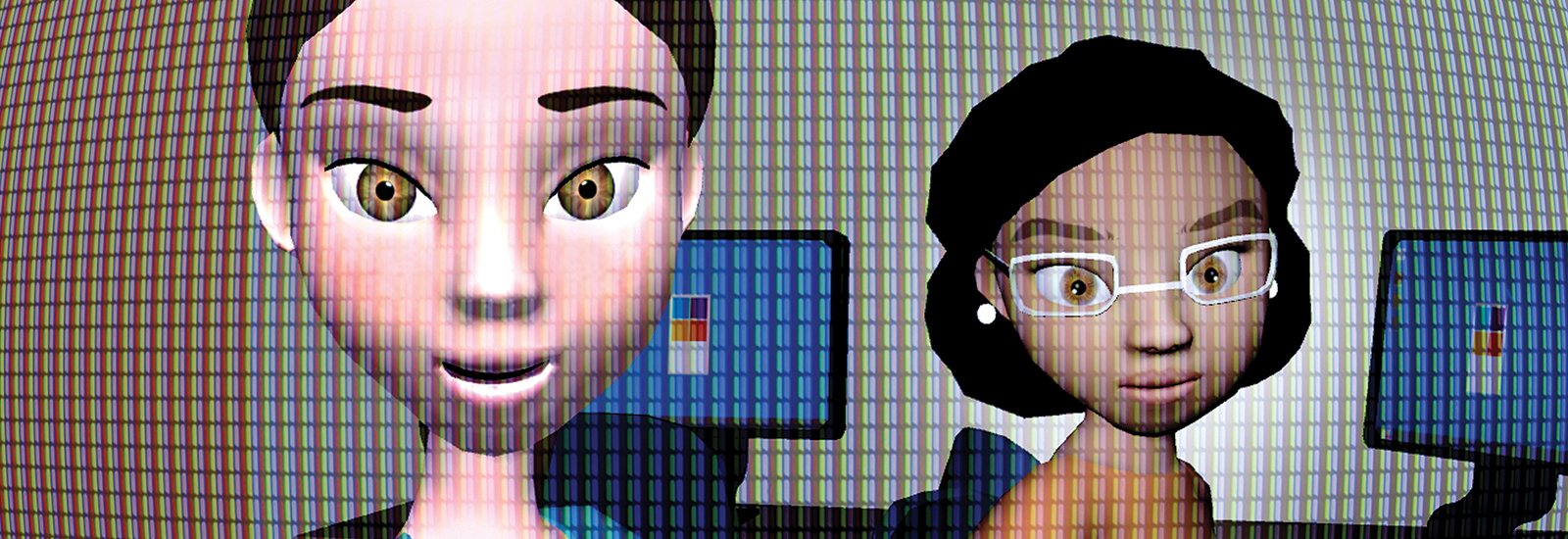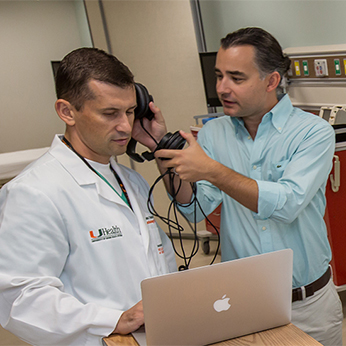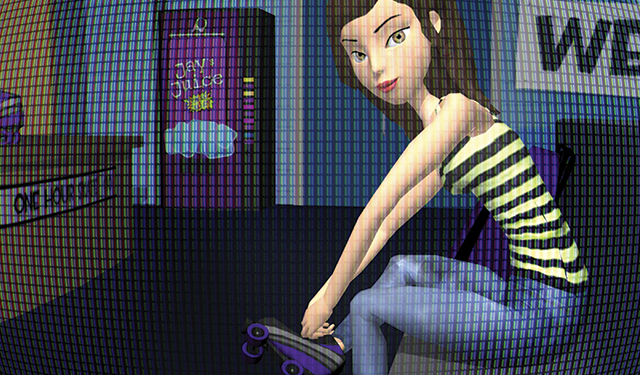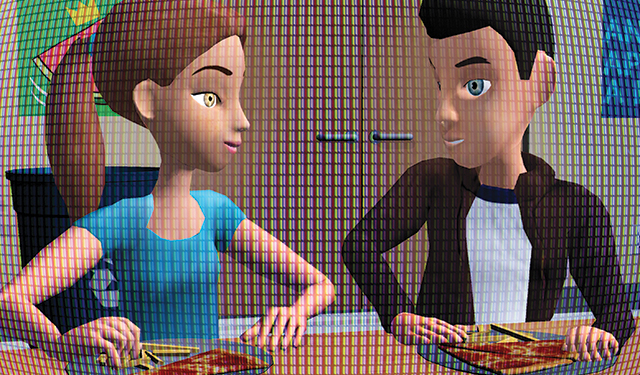Engaging the Digital Generation
The Mighty Girls classroom sessions take place after school over six consecutive school days. In the days following the last session, the girls play DRAMA- RAMA two times. Developed by Norris and her colleagues, this innovative computer game presents the player with four distinct stories and engaging, recognizable characters: the best friend who doesn’t always make good choices, the popular girl who is involved with a high school boyfriend, the cute boy all the girls want attention from, and the party boy who is always offering alcohol or other drugs. These characters challenge the girls to use their new communication and refusal skills to make wise choices. One of the most innovative aspects of the gaming technology is the use of digital puppetry which allows the girls to talk directly to the avatars as if they were real people, fully immersing them in a virtual world that simulates their everyday experiences. Each story unfolds differently as the characters respond to each girl’s own words, tone of voice, and body language. The players earn points by using their Mighty Girl “powers”—V-BAM and POW—to respond to the risky scenarios.
“This is the model of the future,” says Temple. “Technology isn’t going away, and we can use it to our advantage to promote healthy behaviors in teens.”
Eileen Smith, director of the E2i Creative Studio at the University of Central Florida Institute for Simulation and Training, collaborated with Norris in the production of DRAMA-RAMA. Together with project manager and designer Alexia Mandeville, they helped create the look of the fun, cartoonlike characters and the virtual world in which they live. Actors with expertise in interactive performance helped Norris create the game stories and provided the physical poses and facial expressions for each of the characters.
“Emerging media research is about creative innovation, transcending the limitations of current technology, and getting to the next level,” says Smith. “We’re finding new ways to use creative technology for learner engagement.”
Another innovation is the use of the players’ voices and body language—instead of a mouse, joystick or keyboard—as the “input” for the game. “They need to learn how to respond the way they would in a real-life situation—by using their voices and body language,” explains Smith.
Using gaming technology to advance prevention science is an approach that greatly interests the NIH. “The technology behind DRAMA-RAMA helps us capture the girls’ decisions so we can learn more about female empowerment,” says Smith. “The technology guides the experience, but the girls drive the experience.”
Taking New Skills into the Real World
There is great enthusiasm for the project among the girls as well as their parents. “The girls are super positive about the game. They say, ‘This is so fun, I wish I could take it home with me,’” says Ferranti. “And the parents say their daughters have changed in a positive way after being in the program,” adds study assistant Jennifer Donoso, who helps coordinate the DRAMA-RAMA sessions.
The schools are just as enthused. Marly Hernandez is a specialist and school counselor at Miami Lakes Middle School, one of the schools participating in the Mighty Girls program. “The girls who are engaged seem more empowered, and the parents are happy with the program,” she says. “I’ve noticed girls using their skills in my individual and family meetings. It’s exciting. We want to start offering this program to all the girls in our school every year.”
Clearly, Norris’ vision and leadership are at the heart of the program’s success. “Projects like this come down to someone like her making it happen,” says Hecht. “She’s a gifted researcher who has the ability to move effectively within interdisciplinary groups and to connect to the schools and teachers and parents and computer programmers.”
In the end, the girls are taking their new awareness and skills into the very real, everyday world of middle school. After a Mighty Girls session last fall, Natacha Janac, one of Norris’ program facilitators and a master’s student in the UM School of Education and Human Development, was outside the school with one of her students when both noticed a girl trying to tell a boy to stop bothering her. The young “mighty girl” sized up the situation right away. “She’s saying no, but her body language doesn’t match,” she observed. “That girl really needs to learn how to V-BAM!”









